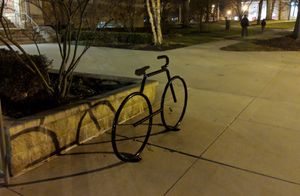There is an interesting and reflective commentary about the historical record and ‘unpublishing’ in the Guardian. I particularly like the comment about tattoos.
The consequences of putting information about yourself into the public domain are more far-reaching in a world where things you say are linked to, easily passed around and can pop up if your name is put into a search engine by, for example, a prospective employer. The web makes a lie of the old cliche that today’s newspaper pages are tomorrow’s fish and chip wrapping. Nowadays, as I’ve said before, the things you say about yourself in a newspaper are more like tattoos – they can be extremely difficult to get rid of. …
… The established view is that a newspaper’s online archive is a historical record and that there is therefore a strong public interest in maintaining its wholeness, unless deletions or amendments are strictly necessary. In line with these principles, changes to the Guardian’s online archives are usually made only for the purpose of correcting errors or for legal reasons. However, in exceptional cases, amendments are made on compassionate grounds, particularly when children are involved. [Open door: The readers’ editor on unpublishing | Comment is free | The Guardian]
Now that the ‘record’ is within the editing control of newspapers, rather than being printed and distributed to the world, it will be interesting to see how they resist requests for changes. The recent introduction of editing histories on web pages by newspapers is welcome. An aspect of future scholarship may be to check versions of newspapers, the publisher version against snapshots in national library or other archives.
The second article examines journal publishing and the scholarly record, Web journals ‘narrowing study‘. This is a lazy piece which runs together various trends in scholarly dissemination. It touches on reputation management in online environments, the use of citation analysis in research evaluation, researcher behavior in an environment of scarce attention and abundant resources, and the proliferation of publishing outlets. The hook is that changes in these various areas add up to a decline in the quality of scholarship, but the article does not do enough work to convince. I hope that any future readers of this particular historical record are appropriately informed ….
See Marieke Guy’s discussion of ‘unpublishing’ on the JISC-PoWR blog.



